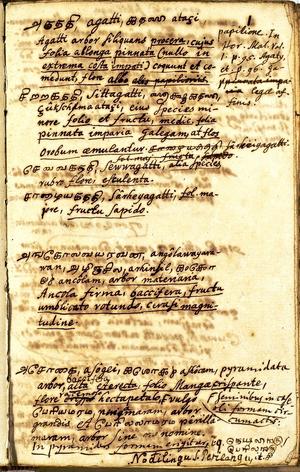Circulation of Scientific Knowledge

From their arrival in Tranquebar, the missionaries of the Protestant Danish-Halle Mission engaged with many different kinds of knowledge present in local Tamil society and environment. This chapter focuses on activities in the field of natural history or science, especially medicine and botany, from the time of the arrival of the Mission Doctor, Samuel Benjamin Cnoll, in 1732 until about 1744. The establishment and formation around this time of the office of the European mission doctor appears to have been an important moment in developing the connection between the Mission and scientific enquiry. As a case study, it presents a window into the complex connections between medicine, science, religion and economy in the early eighteenth century, both locally in colonial south India and in global networks. The case will show how the Halle Mission in Tranquebar was a ‘node’ in the circulation of knowledge in such a global network. As part of the circulation process, new scientific knowledge about the colonial ‘periphery’ was constructed in a contingent local fusion of knowledge negotiated between multiple local actors such as Brahmins, Tamil doctors, Muslim merchants, mission staff of mixed descent, missionaries, the mission doctor etc., as well as between interests in south India and in faraway Europe. Often these processes of collecting, understanding, transforming and fusing knowledge were shaped by the practical and personal problems of life in Tranquebar.
Jensen, Niklas T. (2014). “Making it in Tranquebar: The Circulation of Scientific Knowledge in the early Danish-Halle Mission”, in Esther Fihl and A. R. Venkatachalapathy (eds.), Beyond Tranquebar: Grappling across Cultural Borders in South India. Orient Blackswan.
